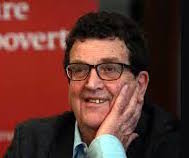 We need to build the capacity of actors on the ground to deliver an empowering strategy for users and beneficiaries, while satisfying the needs of multiple stakeholders, so that we can deliver our sustainable goals in accord with our vision and mission to foster human dignity.
We need to build the capacity of actors on the ground to deliver an empowering strategy for users and beneficiaries, while satisfying the needs of multiple stakeholders, so that we can deliver our sustainable goals in accord with our vision and mission to foster human dignity.
I wrote the above sentence in a 20-second stream of consciousness. It was easy to write because it’s the kind of ‘development-speak’ that I have been spouting for years. But does it mean anything? Or is it just ‘philanthrobabble’?
A couple of years ago, I had a wake-up call about the language we use in philanthropy and development. I was carrying out a survey, and a question I asked about ‘sustainability’ produced puzzling responses. To find out more, I began a conversation with the people who had responded to the survey to ask them what they meant by the term. During this process, I identified four radically different ways in which the word was being used. I had assumed that there was a singular meaning.
We often talk to each other in the philanthropy and development space thinking that the other person knows what we mean when they don’t. We often use words in a lazy way and don’t recognize that some are ‘polysemic’ – a technical term for words that have different meanings.
There are many such words in the language of development. Examples include: ‘democracy’, ‘hope’, ‘resilience’ and – the concept that was central to development when it was originally formulated in the 1940s – ‘dignity’.
The idea of dignity may sound straightforward but when you start looking at it, you find it has many meanings. If you doubt me, look at the lyrics of Bob Dylan’s song ‘Dignity’.
The term dignity is difficult for two reasons. First – like courage, cruelty, truthfulness and kindness – it is a ‘thick concept’. This means that it has both descriptive and evaluative content. Second, it is a ‘cluster concept’. This means that it is made up of many different components, none of which is either necessary or sufficient to define the term. The philosopher Ludwig Wittgenstein suggested that the term ‘game’ is just such a cluster concept.
Being both a cluster concept philosophically and a thick concept anthropologically means that the term dignity is ubiquitous in every culture but open to a variety of interpretations.
This matters because you can’t implement something you can’t define and you most certainly can’t measure it. This is particularly important now because, while leading organizations such as the United Nations use the concept of dignity as the core of their work, the conduct of leading charities has sometimes been far removed from it. In a guest post for Oxfam, called What does ‘Dignity’ add to our understanding of development?, Tom Wein of the Busara Center for Behavioral Economics requests a conversation about the meaning of dignity in development. He asks questions such as: ‘Is your program respectful? How, exactly, do you know that? Did you ask people?’
To contribute to this debate, PSJP decided it would try to unravel the meaning of dignity by consulting with experienced development practitioners from all over the world through three webinars. To start the discussion, participants were asked to comment on a quotation from Jonathan Glennie: ‘Development without dignity is not worth having.’ Following this, they were asked ‘How do you measure dignity in the work of your organization?’ There was then an open discussion about how to improve our understanding of the practical application of dignity in the development field.
Our paper on the discussions, ‘Dignity and Development’, can be found here. It considers how people apply the idea of dignity in their day-to-day work, how they measure it and what could be done to improve how we apply the concept more generally. This paper forms part of the PSJP series on ‘defining key concepts’ in development and philanthropy.
We are conscious that we are at an early stage in this discussion and we offer this as a contribution for others to improve on. We are interested in your feedback and whether you would be interested to take part in further discussions so that we can turn the idea of dignity from a lofty principle spouted by high-status individuals into the daily experience for all the people we work with.
Barry Knight is the director of Webb Memorial Trust and serves on the Management Committee of PSJP.